Technology is amazing. Our lives are driven by it—and made better by it. Smartphones! Solar power! Google (er, sorry, Alphabet?)! Sex toys that connect to the Internet! Remote control quadcopter drones that can spy on our neighbors and deliver packages—and deliver Gandalf to Mordor. (Pretty sure that’s how it happened. I haven’t read LOTR in a while, sorry.)
But tech can go the wrong way, too. Nuclear power can instead mean nuclear bombs. We can genetically modify new foods to feed the world, or engineer a new plague to destroy it. Even something so simple as fire can be used to cook food or burn down your enemy’s house.
In fiction, we are used to seeing the dark side of technology because ultimately, that’s what fiction does: fiction doesn’t work very well when everything is shiny and happy. We need conflict and drama and all the foods that feed the reader. The important thing to note is that these books aren’t anti-technology or anti-science—they are, instead, acknowledging that human influence can be a corrupting influence.
So! Here, then, are five books that remind us all why exactly we shouldn’t be allowed to play with staplers, much less robots, DNA, or other high-end tech.
Jurassic Park—Michael Crichton
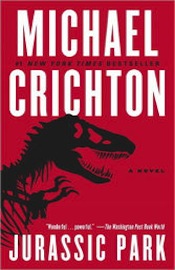 Certainly Mary Shelley’s Frankenstein is the godmother of what we are talking about here (and I’ll be honest, if we could talk shorter works I’d make room for Hawthorne’s “Rappaccini’s Daughter”), and I think that makes Jurassic Park the daddy in this family. It’s a story we all know thanks to the Spielberg movie (and its three less successful sequels), but if you haven’t read the novel—which shows what happens when we resurrect dinosaurs as a form of amusement—you need to. It’s a deeper, weirder read than what shows up on screen. (Avoid the novel sequel, Lost World, as it loses almost everything that made the first book great in an effort to turn in something more “cinematic.”)
Certainly Mary Shelley’s Frankenstein is the godmother of what we are talking about here (and I’ll be honest, if we could talk shorter works I’d make room for Hawthorne’s “Rappaccini’s Daughter”), and I think that makes Jurassic Park the daddy in this family. It’s a story we all know thanks to the Spielberg movie (and its three less successful sequels), but if you haven’t read the novel—which shows what happens when we resurrect dinosaurs as a form of amusement—you need to. It’s a deeper, weirder read than what shows up on screen. (Avoid the novel sequel, Lost World, as it loses almost everything that made the first book great in an effort to turn in something more “cinematic.”)
Oryx and Crake—Margaret Atwood
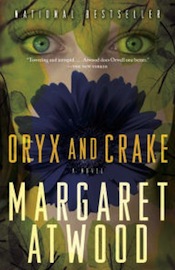 This—plus the whole MaddAddam trilogy—depicts a world willfully destroyed through genetic engineering. Parallel storytelling shows us the world as it is now (mostly empty of humans, but home to engineered mistakes and humanoid beings) and the world then (depicting how the world ends). Sad, funny, satirical storytelling keeps this from ever being close to rote, and ultimately depicts nature itself as perhaps the ultimate victim.
This—plus the whole MaddAddam trilogy—depicts a world willfully destroyed through genetic engineering. Parallel storytelling shows us the world as it is now (mostly empty of humans, but home to engineered mistakes and humanoid beings) and the world then (depicting how the world ends). Sad, funny, satirical storytelling keeps this from ever being close to rote, and ultimately depicts nature itself as perhaps the ultimate victim.
vN—Madeline Ashby
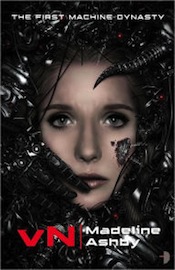 Listen, I loved the movie Ex Machina, but if you want some of those themes unpacked in a big, scary way, you need to read this book. An artificial girl existing in a world where robots can have a failing failsafe, meaning the one thing that prevents them from hurting humans can go awry? Touches on issues of technology, but also gender and what it means to be (or not be) human. In fact, this might be a book that shows less why we shouldn’t have technology, and more why we humans don’t deserve it.
Listen, I loved the movie Ex Machina, but if you want some of those themes unpacked in a big, scary way, you need to read this book. An artificial girl existing in a world where robots can have a failing failsafe, meaning the one thing that prevents them from hurting humans can go awry? Touches on issues of technology, but also gender and what it means to be (or not be) human. In fact, this might be a book that shows less why we shouldn’t have technology, and more why we humans don’t deserve it.
Nexus—Ramez Naam
 Ultimately, NEXUS is an argument for technologies that connect us—but, again, we are talking the purview of fiction which is to also show the dark side, and Naam reveals that side of an illegal, designer nano-drug that tweaks brain chemistry and allows people to link minds. Linked minds means controlled minds. And the kinks aren’t even ironed out in the drug (called Nexus), either.
Ultimately, NEXUS is an argument for technologies that connect us—but, again, we are talking the purview of fiction which is to also show the dark side, and Naam reveals that side of an illegal, designer nano-drug that tweaks brain chemistry and allows people to link minds. Linked minds means controlled minds. And the kinks aren’t even ironed out in the drug (called Nexus), either.
The Fold—Peter Clines
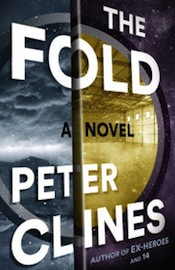 A group of scientists “figure out” how to create a fold in space in order to effortlessly teleport from one place to another. It all goes fine and everyone lives happily ever after—oh, wait. What I mean is, the origins of the technology are revealed as shady at best, and what it results in are gateways that don’t close and horrible things waiting on the other side from endless other universes. Oops.
A group of scientists “figure out” how to create a fold in space in order to effortlessly teleport from one place to another. It all goes fine and everyone lives happily ever after—oh, wait. What I mean is, the origins of the technology are revealed as shady at best, and what it results in are gateways that don’t close and horrible things waiting on the other side from endless other universes. Oops.
Chuck Wendig is a novelist, screenwriter, and game designer. His latest novel, Zer0es, is available August 18th from HarperVoyager. Also coming soon is his compilation book of writing advice from his blog: The Kick-Ass Writer, from Writers Digest.










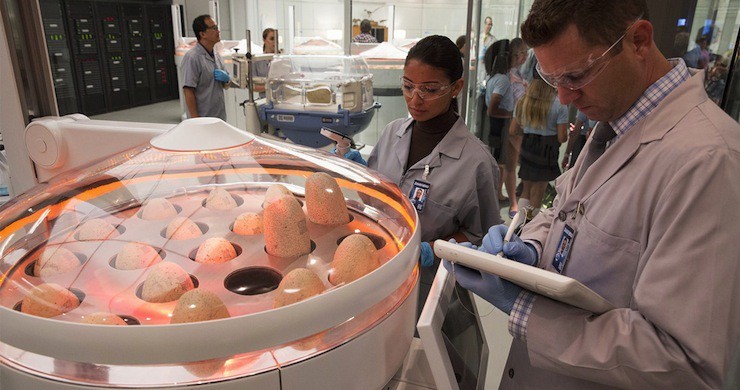
Cat’s Cradle and Flowers for Algernon are the first two that come to mind.
Blood Music by Greg Bear. Plus far too many post-nuclear war adventures that I read when I was younger.
The Book of Phoenix, by Nnedi Okorafor. Another story which demonstrates that you shouldn’t treat people like technology.
Humans playing with alien technology is far worse, particularly if you don’t happen to have a Laxian Key handy.
This got me reading The Fold. %#!$ you ! Terrible book, I want a couple of hours of my life back.
Technology is not the problem but greed, cruelty and being plain stupid is.
Jurassic Park; seriously how could anybody ever have thought bringing back gigantic apex predators was a Good Idea? I mean ten out of ten for cool factor but minus several million for good sense!